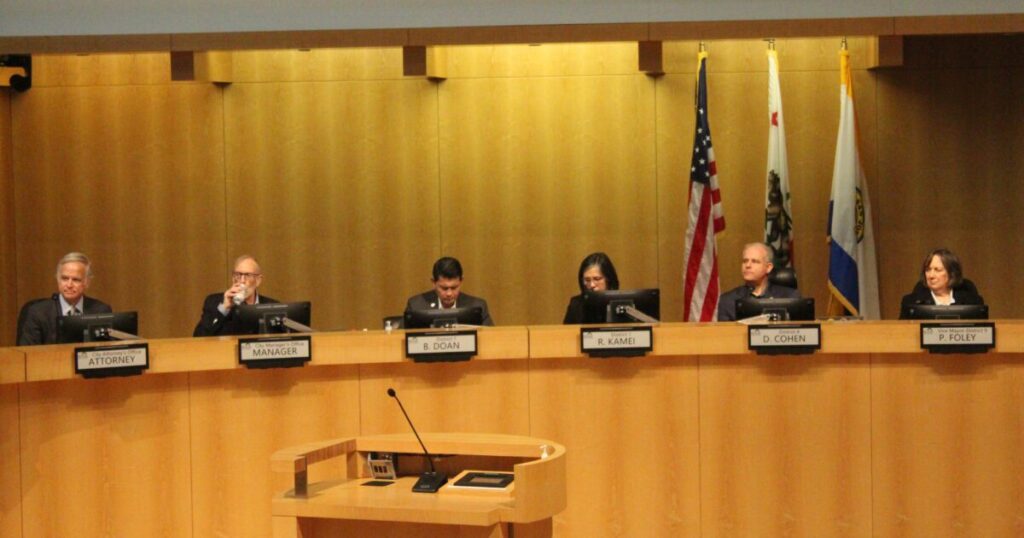Despite San Jose spending hundreds of thousands of dollars to explore ways to assist domestic violence survivors without involving law enforcement, the group who conducted the study came back empty-handed with no solutions.
The city released its “Community-Led Solutions to Domestic Violence” study May 20, conducted by Minnesota-based Battered Women’s Justice Project. The nonprofit directed surveys on gaps in services for survivors and ways to address the problems through community-led solutions. The group interviewed 138 survivors, community leaders and service providers. San Jose allocated $400,000 for the research, and $350,000 was spent.
The study shows San Jose is addressing survivors’ needs in a culturally responsive way, but services are insufficient and survivors aren’t aware of existing programs. The study also concludes services for survivors with a disability or mental health challenges remain limited and demand for housing is high.
The San Jose City Council found the report lacking and expected to receive recommendations for a pilot program.
“We’ve known some of (these findings) already,” District 1 Councilmember Rosemary Kamei said at the May 20 meeting. “This reaffirms it, but it doesn’t get us to the things we might want to try. I just feel that, (since we’re) using public dollars, we really want to get to this alternative (solution) and pilot something.”
Sarah Zárate, policy director for the city manager’s office, said they attempted to find someone who could come up with a pilot program, but local nonprofits expressed concern that if they designed the pilot program, they wouldn’t be able to bid on it later.
To bridge this gap, the Race, Equity, Action, Leadership (REAL) Coalition wants to step in. The coalition is offering to gather nonprofit leaders to conduct interviews and do literature reviews of best practices for community-based domestic violence solutions. the group would present recommendations for a pilot program to the city next year. The outcome could lead to establishment of a San Jose office for violence prevention.
Earlier this year, Santa Clara County established an Office of Community Violence Prevention toward coordinating and implementing policies to reduce violence. The office strategizes ways to address the root causes of violence and evaluates prevention efforts.
Darcie Green, executive director of nonprofit Latinas Contra Cancer, which is part of the REAL Coalition, said non-police interventions are essential for survivors due to fear and distrust of law enforcement — something she knows personally.
“As a survivor of intimate partner violence, I didn’t call the police when it happened, not because I didn’t want safety, but because I knew that calling could and probably would make things worse for me, for my family, even for the person who harmed me,” Green said at the meeting. “I’m not alone. There are many of us in the city, people surviving violence in silence because the systems that are supposed to protect us sometimes also harm us.”
A majority of survivors — 71% — prefer to contact help outside of law enforcement in a domestic violence situation if given the option, according to a 2021 survey conducted by the National Domestic Violence Hotline. People who chose not to contact police did so because they were afraid police wouldn’t believe them, wouldn’t do anything or there would be negative consequences for their partner.
For those who did reach out to police, nearly 40% said they felt less safe after calling, compared to 20% who felt safer.
The REAL Coalition is asking the city for $100,000 to fund their efforts, including $50,000 for staffing and $20,000 for research and data analysis.
“That’s why this pilot and what we are continuing to ask for matters,” Green said. “We deserve more than the limited tools that currently exist. We deserve real options and pathways to safety that don’t come with fear or criminalization or discrimination or any of the harm that sometimes comes from these systems.”
Councilmembers expressed interest in the REAL Coalition’s proposal and unanimously voted to refer the remaining unspent $50,000 back to the budget process. They will later determine a plan for how to use that money. They also asked staff to explore whether opioid settlement funds could be used for an implementation plan. Vice Mayor Pam Foley said she’s in support of using the unspent money to fund the REAL Coalition’s proposal.
Vice Mayor Pam Foley said she’s in support of using the unspent money to fund the REAL Coalition’s proposal.
“We need to take action. We need to break the cycle of violence, and that takes education,” Foley said at the meeting. “It takes a lot of tools, and it takes a strategy.”
Contact Joyce Chu at [email protected] or @joyce_speaks on X.


